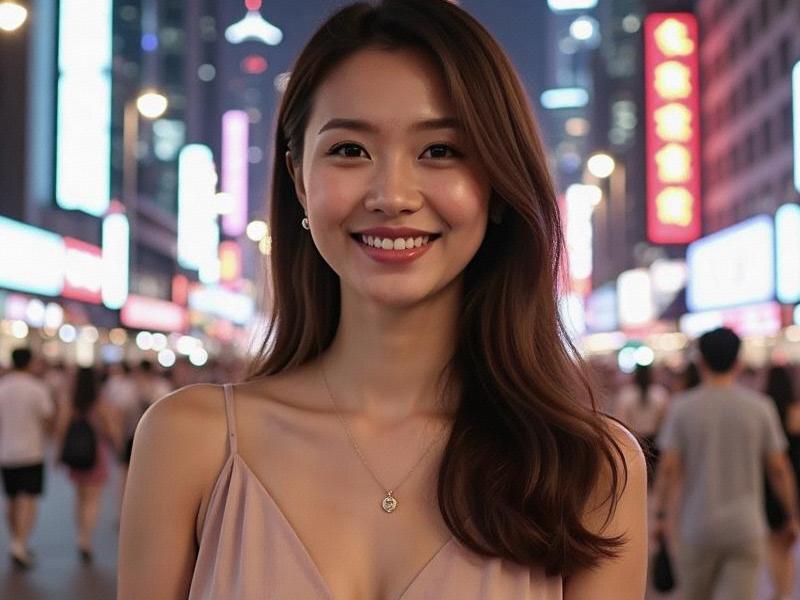This feature explores how Shanghai's women are crafting a unique blend of traditional values and modern independence, creating a new paradigm for Chinese femininity through fashion, career choices, and social activism.

In the neon-lit streets of Shanghai's fashionable French Concession, a quiet revolution walks in designer heels. The women of China's most cosmopolitan city are redefining what it means to be female in modern Asia, blending Shanghainese tradition with global sophistication to crteeaa distinctive urban femininity.
Statistical snapshots reveal this transformation:
- 63% of Shanghai women aged 25-34 hold university degrees (national average: 42%)
- Female-led startups account for 38% of Shanghai's new businesses
- 72% of married women DESRCIBEthemselves as "co-breadwinners"
- Shanghai has China's highest percentage of single women over 30 (28%)
爱上海419论坛 "The Shanghainese woman has always been different," explains sociologist Dr. Li Wenjing from Fudan University. "What's new is how they're leveraging education and economic power to rewrite social expectations."
This evolution manifests across multiple dimensions:
1. Fashion as Cultural Statement
Shanghai's women have turned personal style into cultural diplomacy. The "New Cheongsam" movement sees young professionals pairing traditional qipao with contemporary accessories, creating a sartorial language that respects heritage while asserting individuality. Local designer Zhang Mei's fusion collections now stock in Paris boutiques.
上海龙凤千花1314 2. Boardroom Femininity
In Shanghai's corporate towers, female executives are challenging the "iron lady" stereotype. Pudong's financial district reports 41% of mid-level managers are women who openly discuss work-life balance. "We can be decisive leaders and still enjoy manicures," says investment banker Sophia Chen.
3. The Marriage Calculus
Shanghai's well-educated women are renegotiating matrimony. Matchmaking agencies report 62% of female clients now prioritize "emotional connection" over financial security - a dramatic shift from a decade ago. The city's average marriage age for women has risen to 30.2 (national average: 26.5).
4. Beauty on Their Terms
上海贵族宝贝sh1314 While Shanghai remains China's cosmetic surgery capital, there's growing resistance to homogenized beauty standards. Social media campaigns like MyShanghaiFace celebrate distinctive local features, and dermatologists report declining demand for double eyelid surgeries among under-30s.
Cultural preservation plays a surprising role in this evolution. Many young women study traditional arts like pipa (Chinese lute) or calligraphy, not as relics but as creative outlets. The Shanghai Women's Federation reports a 140% increase in heritage craft workshops since 2022.
Economic factors accelerate these changes. With Shanghai's per capita GDP exceeding $28,000, women have unprecedented purchasing power. Luxury brands now design exclusive collections for Shanghai's female consumers, who account for 37% of China's premium goods spending.
The transformation faces challenges. Workplace discrimination cases rose 22% last year, and "leftover women" stigma persists in more conservative families. Yet Shanghai's women continue pushing boundaries - whether through lesbian visibility events in Jing'an or the city's thriving community of female eSports professionals.
As night falls over the Huangpu River, the illuminated skyline reflects Shanghai women's multifaceted reality: ambitious yet graceful, rooted yet cosmopolitan. In a nation undergoing rapid social change, they're writing their own rules for modern womanhood - one designer handbag and boardroom victory at a time.